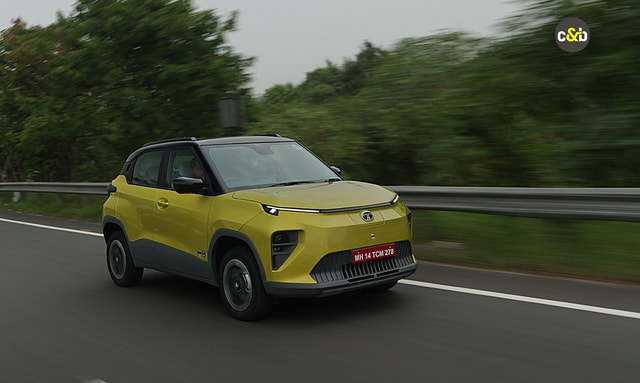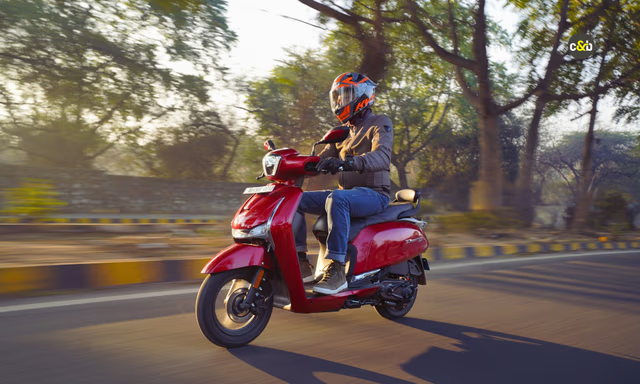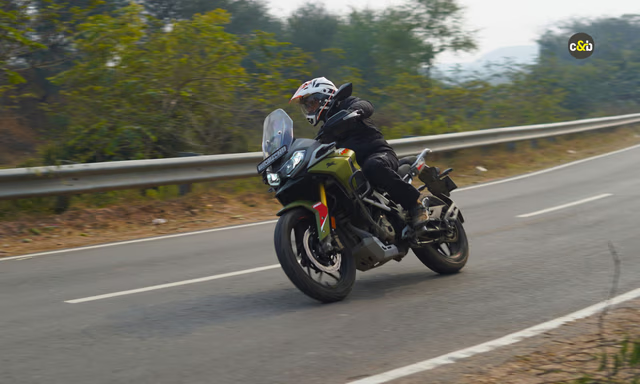Odd-Even Scheme in Delhi to Run Its Course Till January 15 as Planned
car&bike Team
1 min read
Jan 11, 2016, 09:03 PM

The Delhi High Court said on Monday that the AAP government's odd-even vehicle scheme to control rising air pollution in the capital city will continue till January 15 as planned.
The court said it would "not interfere with the notification" that allows only cars with odd-numbered licence plates on Delhi's roads on odd-numbered dates, and those with even-numbered plates on the other days till this Friday.
The court, however, directed the government to take into consideration the contents of the petitions, which had challenged the government's scheme, before taking any further action.
A bench of Chief Justice G Rohini and Justice Jayant Nath said, though the implementation of the scheme may have caused hardship to a section of society, "power of judicial review cannot be extended to determine correctness of such policy decision".
"Keeping in view that restrictions under notification are only for a limited period of 15 days and it is stated that the scheme has been enforced as a pilot project to ascertain the reduction, if any, of pollution levels, we are of the view that interference by this court is not warranted," it said.
Also Read - Odd-Even Formula to Keep Nearly 10 Lakh Private Vehicles Off the Road in Delhi
The court also said in its 12-page order, "Implementation may have caused hardship to a section of the society, however, the power of judicial review cannot be extended to determine the correctness of such a policy decision or to find out whether there could be more appropriate or better alternatives.
"It's neither within domain of the courts nor the scope of judicial review to embark upon an enquiry as to whether a particular public policy is wise or whether a better public policy can be evolved as suggested by petitioners," the bench added.
Also Read - Odd-Even Formula: The Exemptions
It also observed that "law is well settled that on matters affecting policy, courts will not interfere unless the policy is unconstitutional or contrary to statutory provisions or arbitrary or irrational or in abuse of power."
"Since, the policy decisions are taken based on expert knowledge of the persons concerned, courts are normally not equipped to question the correctness of a policy decision," the bench said.
On January 8, the High Court had reserved its order on the pleas challenging the scheme after the Delhi government defended its stand on the issue, saying per capita toxic gas emission had declined due to lesser number of cars on city roads.
Also Read - Odd-Even Rule: Violators Will Not Be Allowed to Park in Delhi
The High Court had earlier questioned the impact of the odd-even operation on pollution and asked the AAP government to consider restricting the programme, slated for a fortnight till January 15, to a week.
The court's order came on a bunch of petitions filed by various individuals, including lawyers, who had challenged the AAP government's December 28, 2015 notification to impose the scheme.
The petitions had contended that the AAP government carried out a pick-and-choose policy against car owners, whereas 46 per cent pollution was caused by trucks.
Delhi High Court Bar Association President Rajiv Khosla, one of the petitioners, said the data submitted by the city government was not correct and the particulate matter across the capital showed a rising trend despite the scheme being in place since January 1.
Defending the scheme, the government had said it aimed at reducing congestion on the capital's roads that has further contributed towards lowering of pollution.
The AAP government has contended that particulate and nitrogen-oxide load from cars have come down during the odd-even programme by as much as 40 per cent and there have been benefits due to the reduction in the number of diesel cars.
The court said it would "not interfere with the notification" that allows only cars with odd-numbered licence plates on Delhi's roads on odd-numbered dates, and those with even-numbered plates on the other days till this Friday.
The court, however, directed the government to take into consideration the contents of the petitions, which had challenged the government's scheme, before taking any further action.
A bench of Chief Justice G Rohini and Justice Jayant Nath said, though the implementation of the scheme may have caused hardship to a section of society, "power of judicial review cannot be extended to determine correctness of such policy decision".
"Keeping in view that restrictions under notification are only for a limited period of 15 days and it is stated that the scheme has been enforced as a pilot project to ascertain the reduction, if any, of pollution levels, we are of the view that interference by this court is not warranted," it said.
Also Read - Odd-Even Formula to Keep Nearly 10 Lakh Private Vehicles Off the Road in Delhi
The court also said in its 12-page order, "Implementation may have caused hardship to a section of the society, however, the power of judicial review cannot be extended to determine the correctness of such a policy decision or to find out whether there could be more appropriate or better alternatives.
"It's neither within domain of the courts nor the scope of judicial review to embark upon an enquiry as to whether a particular public policy is wise or whether a better public policy can be evolved as suggested by petitioners," the bench added.
Also Read - Odd-Even Formula: The Exemptions
It also observed that "law is well settled that on matters affecting policy, courts will not interfere unless the policy is unconstitutional or contrary to statutory provisions or arbitrary or irrational or in abuse of power."
"Since, the policy decisions are taken based on expert knowledge of the persons concerned, courts are normally not equipped to question the correctness of a policy decision," the bench said.
On January 8, the High Court had reserved its order on the pleas challenging the scheme after the Delhi government defended its stand on the issue, saying per capita toxic gas emission had declined due to lesser number of cars on city roads.
Also Read - Odd-Even Rule: Violators Will Not Be Allowed to Park in Delhi
The High Court had earlier questioned the impact of the odd-even operation on pollution and asked the AAP government to consider restricting the programme, slated for a fortnight till January 15, to a week.
The court's order came on a bunch of petitions filed by various individuals, including lawyers, who had challenged the AAP government's December 28, 2015 notification to impose the scheme.
The petitions had contended that the AAP government carried out a pick-and-choose policy against car owners, whereas 46 per cent pollution was caused by trucks.
Delhi High Court Bar Association President Rajiv Khosla, one of the petitioners, said the data submitted by the city government was not correct and the particulate matter across the capital showed a rising trend despite the scheme being in place since January 1.
Defending the scheme, the government had said it aimed at reducing congestion on the capital's roads that has further contributed towards lowering of pollution.
The AAP government has contended that particulate and nitrogen-oxide load from cars have come down during the odd-even programme by as much as 40 per cent and there have been benefits due to the reduction in the number of diesel cars.
Latest News
 car&bike Team | Feb 28, 2026Zero-Dep Cover: The Renewal Add-on That Ensures You Don’t Pay for Parts1 min read
car&bike Team | Feb 28, 2026Zero-Dep Cover: The Renewal Add-on That Ensures You Don’t Pay for Parts1 min read car&bike Team | Feb 28, 2026Toyota Land Cruiser, Lexus LX Recalled Over Transmission Malfunction RiskThe recall affects 969 units of the Toyota Land Cruiser and 117 units of the Lexus LX.1 min read
car&bike Team | Feb 28, 2026Toyota Land Cruiser, Lexus LX Recalled Over Transmission Malfunction RiskThe recall affects 969 units of the Toyota Land Cruiser and 117 units of the Lexus LX.1 min read Jaiveer Mehra | Feb 27, 2026New Tata Tiago EV Spied Testing On Indian Roads: Enhanced Range Incoming?Launched in India in 2022, the Tiago EV received a notable update last year, adding in newer features and some styling tweaks.3 mins read
Jaiveer Mehra | Feb 27, 2026New Tata Tiago EV Spied Testing On Indian Roads: Enhanced Range Incoming?Launched in India in 2022, the Tiago EV received a notable update last year, adding in newer features and some styling tweaks.3 mins read car&bike Team | Feb 27, 2026VLF Mobster 135 Price Hiked As Introductory Offer EndsThe Mobster 135 is now priced at Rs 1.37 lakh (ex-showroom), which marks an increase of Rs 7,000.2 mins read
car&bike Team | Feb 27, 2026VLF Mobster 135 Price Hiked As Introductory Offer EndsThe Mobster 135 is now priced at Rs 1.37 lakh (ex-showroom), which marks an increase of Rs 7,000.2 mins read car&bike Team | Feb 27, 2026New MG plug-in hybrid SUV Spied testing In India AgainMG’s next new launch in the Indian market could be the Wuling Starlight 560-based model that has been spied on test for the second time in India.2 mins read
car&bike Team | Feb 27, 2026New MG plug-in hybrid SUV Spied testing In India AgainMG’s next new launch in the Indian market could be the Wuling Starlight 560-based model that has been spied on test for the second time in India.2 mins read Jaiveer Mehra | Feb 27, 2026Mini Cooper S Victory Edition Bookings Open In IndiaSpecial edition of the Mini hatchback commemorates the brand’s 1965 Monte Carlo Rally victory.1 min read
Jaiveer Mehra | Feb 27, 2026Mini Cooper S Victory Edition Bookings Open In IndiaSpecial edition of the Mini hatchback commemorates the brand’s 1965 Monte Carlo Rally victory.1 min read
 Bilal Firfiray | Feb 28, 2026Tata Punch EV Facelift Review: More Range, More Sense, Less MoneyThe Tata Punch EV facelift gets a bigger 40 kWh battery, faster 60 kW DC charging, improved thermal management, and better real-world range, and all of that at a lower introductory price. But does it become a more complete package now?6 mins read
Bilal Firfiray | Feb 28, 2026Tata Punch EV Facelift Review: More Range, More Sense, Less MoneyThe Tata Punch EV facelift gets a bigger 40 kWh battery, faster 60 kW DC charging, improved thermal management, and better real-world range, and all of that at a lower introductory price. But does it become a more complete package now?6 mins read Preetam Bora | Feb 24, 2026Hero Destini 110 Review: Simplicity, RefinedThe Hero Destini 110 is a no-nonsense commuter that is simple, comfortable and above all, fuel efficient. In 2026, when buyers are spoilt for choice, is it good enough to consider?1 min read
Preetam Bora | Feb 24, 2026Hero Destini 110 Review: Simplicity, RefinedThe Hero Destini 110 is a no-nonsense commuter that is simple, comfortable and above all, fuel efficient. In 2026, when buyers are spoilt for choice, is it good enough to consider?1 min read Preetam Bora | Feb 23, 2026TVS Apache RTX Road Test Review: Redefining the Entry-Level ADVAfter spending some time with the TVS Apache RTX in traffic, the daily commute, as well as on open highways, one thing becomes clear: the RTX is trying to redefine the entry-level ADV segment. But is it without fault?1 min read
Preetam Bora | Feb 23, 2026TVS Apache RTX Road Test Review: Redefining the Entry-Level ADVAfter spending some time with the TVS Apache RTX in traffic, the daily commute, as well as on open highways, one thing becomes clear: the RTX is trying to redefine the entry-level ADV segment. But is it without fault?1 min read Girish Karkera | Feb 20, 2026Road Test: 2025 VinFast VF7 AWD Sky InfinityFlagship all-electric SUV from the Vietnamese car maker gets most of the basics right.1 min read
Girish Karkera | Feb 20, 2026Road Test: 2025 VinFast VF7 AWD Sky InfinityFlagship all-electric SUV from the Vietnamese car maker gets most of the basics right.1 min read Jaiveer Mehra | Feb 18, 2026New BMW X3 30 Vs Mercedes-Benz GLC 300: Midsize Luxury SUV FaceoffWith the new X3 30, BMW has a direct competitor to the petrol GLC 300, but which is the luxury SUV for you?1 min read
Jaiveer Mehra | Feb 18, 2026New BMW X3 30 Vs Mercedes-Benz GLC 300: Midsize Luxury SUV FaceoffWith the new X3 30, BMW has a direct competitor to the petrol GLC 300, but which is the luxury SUV for you?1 min read
























































































































